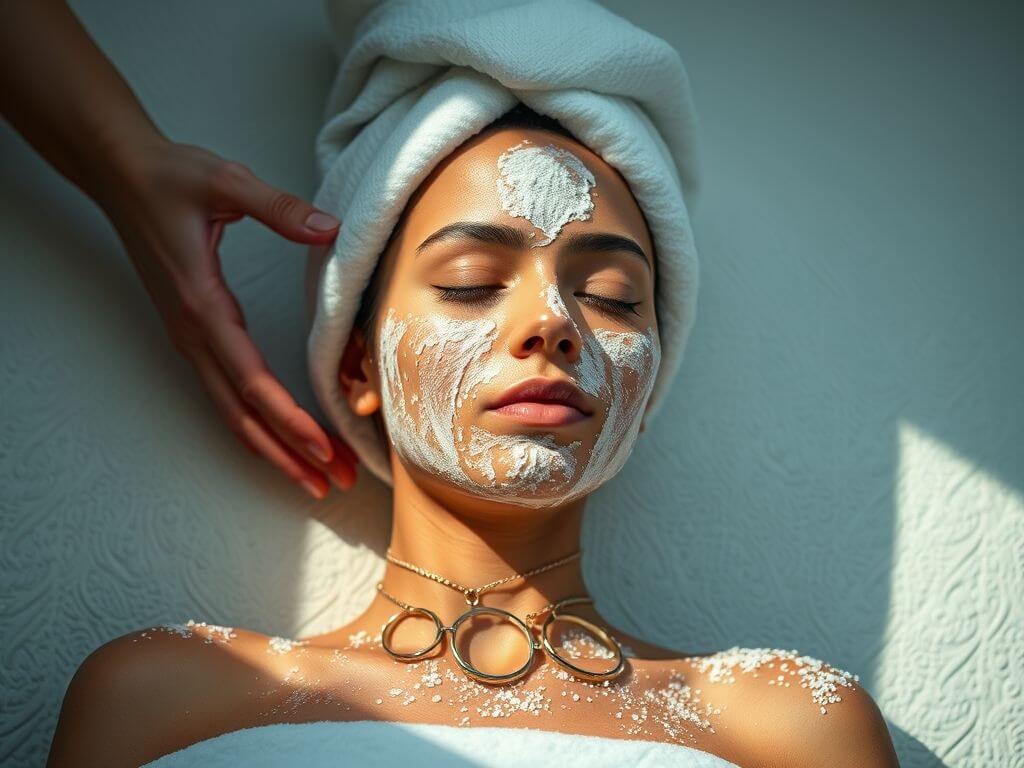What Is Exfoliation?
Exfoliation is the process of removing dead skin cells from the surface of your skin. This essential skincare practice helps to reveal healthier, smoother skin underneath. By sloughing off these dead cells, you can promote cell turnover, improve skin texture, and enhance your overall complexion. In this article, we’ll dive deeper into what exfoliation is, its benefits, and how you can easily incorporate it into your skin care routine, especially if you are in Massachusetts.
Why Is Exfoliation Important?
Understanding the importance of exfoliation is crucial for anyone looking to maintain healthy skin. As we age, our skin’s natural ability to shed dead cells slows down, leading to a buildup that can cause dullness, clogged pores, and even acne. Regular exfoliation helps to combat these issues by:
- Promoting New Cell Growth: Exfoliation encourages the growth of new cells, giving your skin a fresh and youthful appearance.
- Unclogging Pores: By removing dead skin cells, exfoliation helps to prevent clogged pores, which can lead to breakouts.
- Enhancing Absorption: Exfoliating your skin allows your other skincare products, like serums and moisturizers, to penetrate more effectively.
- Improving Texture: Regular exfoliation can smooth out rough patches and improve your skin’s overall texture.
Types of Exfoliation
There are two main types of exfoliation: physical and chemical. Understanding the differences can help you choose the right method for your skin type.
Physical Exfoliation
Physical exfoliation uses abrasive materials, such as scrubs or brushes, to manually remove dead skin cells. Examples include:
- Scrubs: These contain small granules that physically scrub the skin, such as sugar scrubs or coffee scrubs.
- Exfoliating Brushes: Tools like facial brushes or sponges can help in the exfoliation process.
While physical exfoliation can provide immediate results, it’s essential to choose products that are gentle on the skin to avoid irritation.
Chemical Exfoliation
Chemical exfoliation involves the use of acids or enzymes to dissolve dead skin cells. This method can be less abrasive and more effective for certain skin types. Popular options include:
- Alpha Hydroxy Acids (AHAs): These water-soluble acids, like glycolic acid and lactic acid, are excellent for dry skin types.
- Beta Hydroxy Acids (BHAs): Salicylic acid is a popular BHA that penetrates deeper into pores, making it ideal for oily or acne-prone skin.
How to Exfoliate Safely
Exfoliation can be highly beneficial, but it’s important to do it safely to avoid damaging your skin. Here are some tips for safe exfoliation:
Get more content like this!
Sign up to receive updates and new terms first hand.
- Know Your Skin Type: Choose an exfoliation method that suits your skin type. Sensitive skin types may benefit from gentler options.
- Limit Frequency: For most skin types, exfoliating 1-3 times a week is recommended. Over-exfoliation can lead to irritation.
- Follow Up with Moisturizer: Always apply a moisturizer after exfoliating to hydrate and soothe your skin.
- Use Sunscreen: Exfoliation can make your skin more sensitive to the sun, so applying sunscreen is crucial.
Applications of Exfoliation in Daily Life
Incorporating exfoliation into your skincare routine doesn’t have to be complicated. Here’s how you can make it part of your daily life:
- Start Simple: If you’re new to exfoliation, start with a gentle physical scrub once a week. Gradually increase frequency as your skin adjusts.
- Combine with Other Treatments: Use exfoliation in conjunction with other treatments, like masks or serums, for enhanced results.
- Consider Professional Treatments: If you want to take exfoliation a step further, consider scheduling professional treatments like chemical peels or microdermabrasion.
Related Concepts in Skin Care
Exfoliation is just one part of a comprehensive skincare routine. Here are some related concepts that can further enhance your skin health:
- Moisturizing: Keeping your skin hydrated is essential for maintaining its health and appearance.
- Sunscreen: Protecting your skin from UV damage is crucial, especially after exfoliation.
- Cleansing: A good cleansing routine prepares your skin for effective exfoliation.
Final Thoughts
Exfoliation is a powerful tool in your skincare arsenal, helping you to achieve glowing, healthy skin. By understanding the different types of exfoliation and how to incorporate it into your routine safely, you can enjoy the numerous benefits it offers. Remember to listen to your skin and adjust your exfoliation practices as needed. So go ahead, give your skin the care it deserves and embrace the journey to a radiant complexion!
If you’re in Massachusetts and looking for local beauty treatments or products, reach out to nearby beauty salons or wellness centers for personalized advice!

